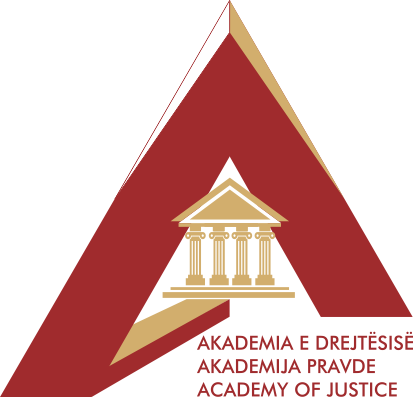
 ACADEMYOF JUSTICE
ACADEMYOF JUSTICE
On June 12 2018, Academy of Justice within its Continuous training program organized a training on “Decisions and types of decisions according to the Law on Contested Procedure”.
Purpose of this training was to extend the judges knowledge related to the content and structure of judgments and its types.
First part of the training elaborated on types of judgments and conditions for issuing them, whereas the second part continues on content of the judgment and role of each type of judgment.
The training emphasized the fact the Law on Contested procedure has foreseen several types of judgments that can be issued by the court, in certain circumstances and in complementing the special procedural terms. Assessment of specific terms for each type of judgment by the courts has created some dilemmas that are causing in some cases courts assess wrongfully these conditions, and consequently bring conclusions, respectively judgments that may breach provisions of the contested procedure.
In the training it was emphasized that by a judgment the court decides on the merits of the petition which is the subject of the trial. When deciding on the main issue, the court is bound by the parties' request. It cannot decide for anything else except for what the party has asked. When deciding on a merit of the case, the court is obliged to decide on all the claims in full. The judgment, in addition to the decision on the main issue, also contains the decision on the accessory claim.
It was continued and highlighted that the matter of reasoning of judgment is treated in the constitutional legislation, which considers that the right to have a justified judgment is part of the right to a fair legal proceeding, as in Article 31 of the Constitution and Article 6 of the ECHR.
Regarding the reasoning of the decisions, the European Court of Human Rights has emphasized in one of its decisions that: "The reasoning of the verdict is a key component of fair trial and is essential for brining justice and is the best indicator which proves that courts have grounded sayings in their decisions. Function of a well-reasoned decision is to tell the parties that they have been heard".
In this training participants were provided training handouts, were involved in discussions and case study analysis, and elaborate correctly provisions of the Law on Contested Procedure related to the judgments and its types. This training was delivered in form of theoretical lecturing combined with practical cases from the case law and ways of brining merit-based judgments.
Beneficiaries of this training were judges of basic courts – general departments – civil division.
12-06-2018